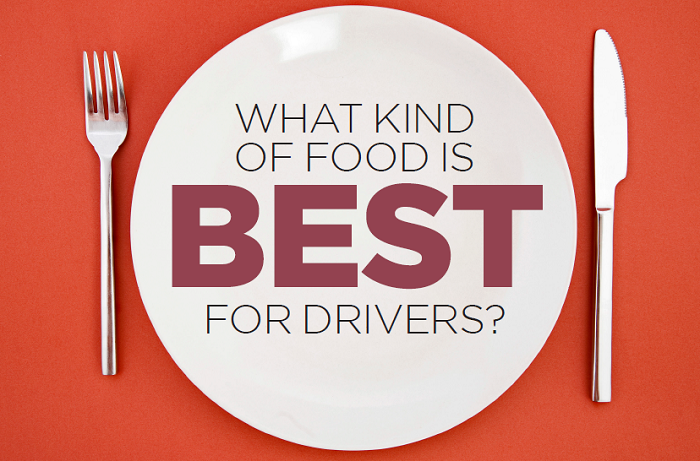It is very important that drivers of all kinds of vehicles pay attention to what they eat before setting off and during a long journey. Eating the wrong food can cause drowsiness, fatigue, anxiety or stomach upsets that affect concentration and can considerably increase the risk of having an accident.

Dr Mari Carmen López of the SEAT cars medical centre said, “It's not good enough to tell yourself it'll go away soon; you have to be in full control of your faculties and stay as comfortable as possible, and that includes eating the right food.”
Driving is an activity that burns from 1,000 to 1,350 kcal a day; similar to resting. For this reason, a driver does not require a large intake of food, but rather should limit it to 2,000/2,500 kcal per day. But, explained Dr López, “You should never get behind the wheel on an empty stomach, as you could suffer low blood sugar and dizziness. Furthermore, hunger pangs diminish your attention span as your mind is on other things.”
Large meals may lead to drowsiness, abdominal pains, heartburn and gas, all symptoms that alter your ability to concentrate. After lunch, for example, it has been demonstrated that performance decreases by 10%. Dr López recommends making frequent stops, eating small quantities, and taking a walk for about 15 minutes after a main meal.
Deep-fried or spicy food and sauces can become obstacles to safe driving. At the wheel it is also best to steer clear of rice, beans and pasta. As driving is an activity that does not require a significant calorie intake, it is best not to eat too many carbs as they cause bloating. Besides, they digest easily and make you feel hungry again very soon. Eating too much of citric fruits, onions and tomatoes, even though they are healthy, causes acid indigestion, so it is best to avoid them with a full day of driving ahead.
Keep well hydrated. According to a study published by Loughborough University (UK) and the European Hydration Institute, drivers who are not adequately hydrated make mistakes similar to those with a blood alcohol level of 0.8 g/l, in other words, as if they had drunk four glasses of wine. The most common are involuntary lane departures, late braking reflexes and easing onto the shoulder. For this reason, it is essential to drink fluids, especially in hot weather and at each stop. Water is the best option, but it can be mixed with fruit juice or soft drinks.
Finally, don’t be tempted to eat on the move. Although most European traffic rules do not expressly prohibit this, a study by the University of Leeds (UK) concludes that reaction time while eating goes down by up to 44%. In Spain, drivers caught eating or drinking face a fine of €200, while in the UK it is £100 and three penalty points. The best advice is to plan regular rest stops to eat and replenish fluids.
Editor’s note: I wonder if SEAT cars have cup holders?